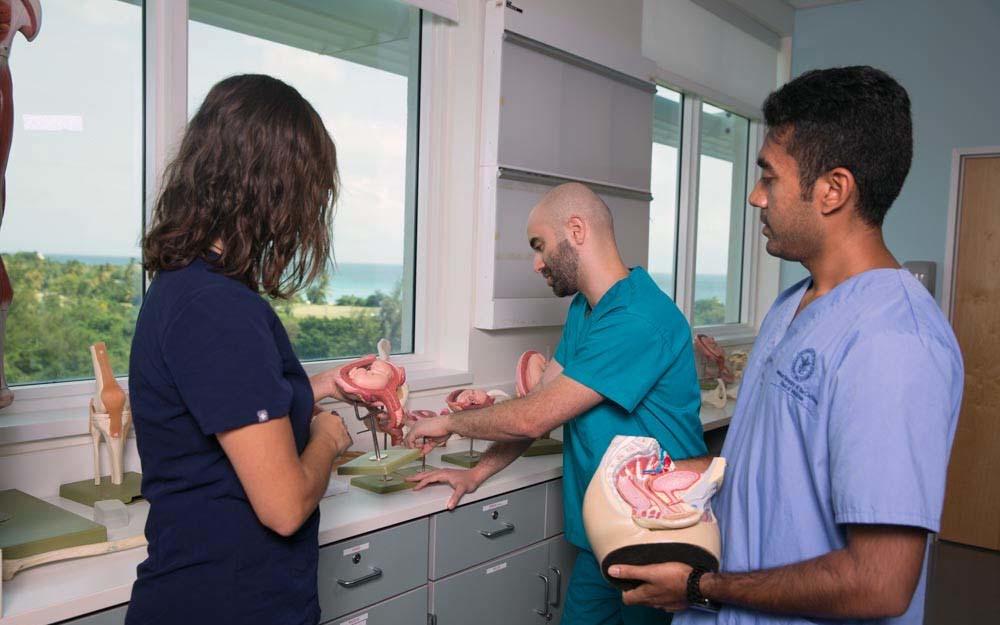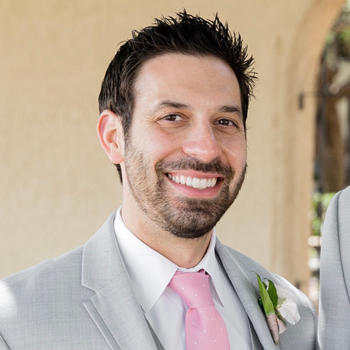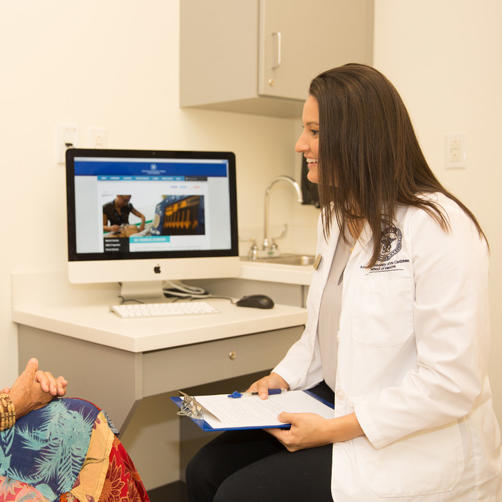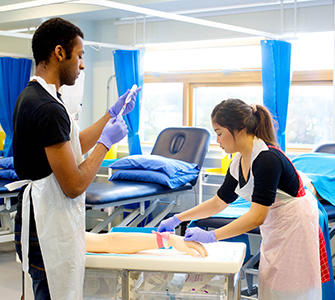For a person with an interest in medicine, nerves of steel, and steady hands, few career choices can be as exciting as surgery. But there are many different types of surgeons—almost as many as there are parts of the body.
What types of surgeons are there? And which of the surgical specialties is right for you? This article will describe a number of popular surgery specialties.
GENERAL SURGERY
General surgery involves the treatment of a broad range of problems that require surgical intervention. In essence, a general surgeon specializes in surgery itself.
General surgeons usually treat problems of the abdomen and its contents but also certain problems of the head and neck. They operate on the glands of the endocrine system and remove a variety of tumors. General surgeons tend to be experts in commonly performed surgeries, such as appendectomy (removal of the appendix), splenectomy (removal of the spleen) and hernia repair.
Many other types of surgeons are quite narrow in focus. A general surgeon’s broader training, by contrast, is especially useful in dealing with problems that affect multiple body parts and systems, such as major trauma. General surgeons also tend to enjoy a greater variety in their daily work.
CARDIO AND THORACIC SURGERY
Cardio and thoracic surgeons specialize in surgeries of the chest. Cardiothoracic surgery ranks among the most high-intensity of surgeon specialties, as this area of the body includes some of the most vital and lifegiving organs—the heart and lungs.
Cardio and thoracic surgeons perform such critical operations as open heart surgery and removal of cancerous lung tissue, along with tumors of the esophagus and chest wall. They treat abnormalities of the great blood vessels, including the aorta, and problems of the diaphragm, the chief muscle used in breathing. Cardiothoracic surgeons also repair problems with the airways along with injuries of the chest.
COLON AND RECTAL SURGERY
Colon and rectal surgery, sometimes called colorectal surgery, involves treatment of the intestinal tract (the lower part of the digestive system), including the colon and rectum. The colorectal area is subject to a number of painful or life-threatening conditions that require surgical care. Colorectal surgeons treat such common problems as hemorrhoids and fissures (painful tears in the anal lining). They may use a tube called an endoscope to search for problems of the intestinal lining, such as cancers and polyps (precancerous growths).
Colorectal surgeons may also perform surgical interventions to treat such problems as constipation and incontinence. They treat such inflammatory bowel diseases as ulcerative colitis and Crohn’s disease.
OBSTETRICS AND GYNECOLOGY
Obstetrics and gynecology may not be the first discipline to come to mind when you think of when you think of surgical specialties. But ob-gyns perform a variety of surgeries related to women’s health and pregnancy. Obstetrics and gynecology is a great specialty for a surgeon who wants to help women and bring new life into the world.
Gynecologists may perform surgical interventions to assist with incontinence or overactive bladder. They may perform a hysterectomy (removal of the uterus) and the surgical removal of ovarian cysts. Tubal ligation is a surgery performed to prevent pregnancy.
Obstetricians perform a number of surgeries related to prenatal care and childbirth. In an operation called amniocentesis, the obstetrician takes a sample of the fluid surrounding the fetus for medical analysis. A caesarean section is a common operation to facilitate child birth.
NEUROLOGICAL SURGERY
Neurological surgeons specialize in treating disorders of the brain, spinal cord, and associated nerves. They also treat problems in the structures that support these organs, including the skull, the vertebrae (backbones), the meninges (membranes covering the brain and spinal cord), the associated blood vessels, and the pituitary gland.
Common problems treated by neurological surgeons include head and spinal injuries. Neurological surgeons may also remove brain and spinal tumors. Aneurysms are dangerous bulges that can form in the arteries of the brain. The discs that support and cushion the spine can also become herniated (ruptured), requiring surgery.
Neurological surgery ranks among the most rapidly advancing surgical specialties, with new discoveries being made every day. It is ideal for a surgeon looking for a specialty that is fast-paced and intellectually challenging.
OPHTHALMIC SURGERY
Ophthalmic surgeons treat disorders affecting the eye and vision. This includes the eyelid and the muscles surrounding the eye.
Like an optometrist, an ophthalmic surgeon can prescribe glasses and contact lenses. But the surgeon can also perform a range of other procedures. Commonly treated disorders include cataracts (clouding of eye’s lens) and glaucoma (excess fluid pressure within the eye).
Ophthalmic surgeons work to restore or improve their patients’ vision, making ophthalmology among the most rewarding surgeon specialties. Also, eye problems are common as people age, ensuring high demand for ophthalmic surgery.
ORAL AND MAXILLOFACIAL
Oral and maxillofacial surgery is a specialty pursued with those with a background in dentistry. An oral and maxillofacial surgeon treats both functional and cosmetic problems of the mouth, jaw, and face. It is a great specialty for a surgeon who generally prefers to work in an office environment, rather than a hospital setting.
Surgeons in this specialty may extract wisdom teeth or other problem teeth, treat a misaligned jaw or bite disorders, and install dental implants. They may also treat facial trauma and remove tumors and cysts of the jaw and mouth.
ORTHOPAEDIC SURGERY
An orthopaedic surgeon treats problems of the body’s bones, muscles, and joints. When a patient has a problem that makes certain movements difficult or painful, it is the orthopaedic surgeon’s job to repair the injury and restore motion.
Orthopaedic surgeons often treat sports injuries or problems developing from everyday movements. They also may treat inborn or degenerative disorders of the spine, shoulders, elbows, hands, hips, knees, and feet. Back pain is a major reason many people see an orthopaedic surgeon. Joint replacement is a type of surgery commonly performed by orthopaedic surgeons.
An orthopaedic surgeon may also remove bone tumors. They treat such conditions as osteoporosis, arthritis, and carpal tunnel syndrome. Of the different types of surgeons, orthopaedic surgeon is a good career choice for someone who is passionate about helping people by relieving pain and restoring movement capabilities.
OTOLARYNGOLOGY
An otolaryngologist is trained in nonsurgical and surgical treatment of the head and neck. This includes the ear, nose, and throat, and otolaryngologists are sometimes called ear, nose, and throat doctors (ENT’s).
Otolaryngologists treat disorders of hearing and the voice. They treat hearing loss, ear infections, and balance disorders, often caused by problems with the inner ear. They also treat problems with the vocal cords and trouble swallowing. Treatment of the nose includes alleviating allergies and restoring normal smell. Otolaryngologists also remove tumors of the head and neck and treat trauma to these regions.
PEDIATRIC SURGERY
Pediatric surgeons specialize in the surgical treatment of children, from newborns to teenagers. They may even perform some prenatal procedures.
Pediatric surgeons treat in children many of the same problems that befall adults, in addition to some unique to children. Neonatal care, for example, involves the treatment of birth defects among newborns. Other common problems treated by pediatric surgeons include trauma, problems of the gastrointestinal tract, and pediatric cancers.
Good surgical care can set a child on the road to a healthy life, making pediatric surgery a among the most rewarding surgery specialties, particularly for those who love children. However, children can be challenging patients, requiring additional reserves of empathy and patience.
PLASTIC SURGERY
Plastic surgeons treat problems of the body’s surface covering and the underlying tissues that give it structure. They specialize in grafting and shaping the skin and sculpting or implanting the underlying tissues.
Many people are familiar with the role that plastic surgeons play in cosmetic surgeries that improve aesthetic appearance, such as nose and ear jobs, breast and lip augmentation, and liposuction. But plastic surgery also involves correcting both cosmetic and functional deformities, reconstructing damaged tissues, and the treatment of scars.
MEET A PLASTIC SURGEON
Edward Daniele, MD, a 2014 graduate of AUC, is a Plastic Surgery Fellow, University of Illinois at Chicago. We asked Dr. Daniele to describe the role of a plastic surgeon.
Q: Why did you decide to go into your specialty?
A: My love for the field of plastic surgery grew throughout my general surgery residency at Texas Tech University. Plastic surgeons treat everyone, both pediatric and elderly, and can reconstruct defects from head to toe. I loved that plastic surgeons can find a myriad of ways to solve a problem.
Q: Any advice to medical students considering the specialty?
A: My advice might be cliché, but looking back at my last ten years in the medical field (four years of medical school, five years of general surgery residency, two years plastic surgery fellow), the one thing I can confidently say, is “Never give up.” I can still hear my college advisors tell me I won’t make it in medicine, and other medical students tell me I can’t match into a surgical specialty. This did nothing but drive me to work harder and prove everyone wrong.
Q: What’s the most rewarding part of your job?
A: The most rewarding part of my job is simply having the privilege to take care of patients. I had a mentor once tell me in training that "this is the greatest job in the world," and it is true. Being able to wake up every day and treat patients surgically, dealing with things from maxillofacial and hand trauma to cleft lip and palates, is an honor that came at no small cost, and something that I take pride in every single day.
UROLOGY
Urology is a medical specialty that includes surgeries of the urinary system and associated organs. The urinary system removes urine from the body. This system includes the kidneys, the bladder, and tubes called the ureters and urethra.
Urologists perform a variety of surgeries, many of them related to trouble urinating or incontinence of the bladder. They treat kidney stones and remove tumors of the bladder.
Urology is also the surgical specialty of the male reproductive system. Urologists are frequently involved in the surgical treatment of prostate cancer.
VASCULAR SURGERY
A vascular surgeon is skilled in the treatment of the arteries and veins. They also treat the vessels of the lymphatic system, which return fluids from the body’s tissues to the bloodstream.
Vascular surgeons help to prevent serious health problems by managing blockages, damaged blood vessels, aneurysms, and other blood flow problems. A common problem in vascular surgery is atherosclerosis, sometimes called hardening of the arteries. Vascular surgeons may also operate to restore blood flow to the extremities.
Many vascular surgeries are performed by inserting a tube called a catheter into the blood vessels. Such a surgery may make use of a balloon to gently widen a blood vessel and relieve blockage, a procedure called angioplasty. The surgeon may also install a scaffold called a stent to support a damaged blood vessel.
BECOMING A SURGEON
Now that you know the various types of surgeons, which of the surgical specialties seems right for you? A career in any of the surgery specialties begins with four years of education at a quality medical school such as the American University of Caribbean School of Medicine (AUC). Follow this link to apply for admission to AUC.
Related resources:
- Designer Changes Careers to Pursue Surgery
- Bridging the Gender Gap: Women in Surgery
- 5 Questions with Chief Surgery Resident Joe Watson (‘12)






